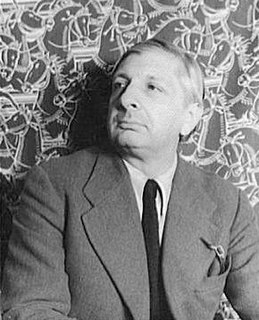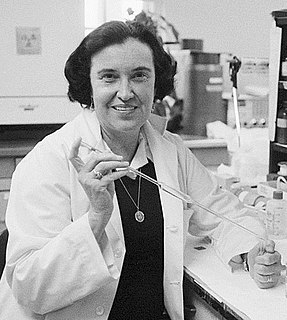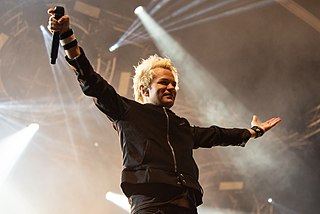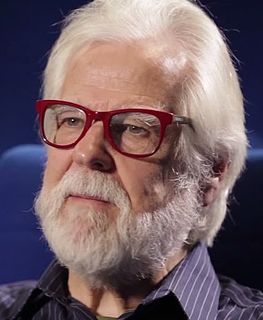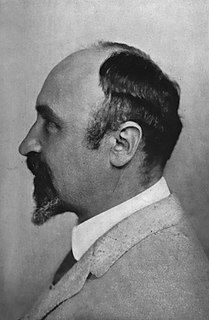A Quote by Harry Emerson Fosdick
The more we know about this universe, the more mysterious it is. The old world that Job knew was marvelous enough, and his description of its wonders is among the noblest poetry of the race, but today the new science has opened to our eyes vistas of mystery that transcend in their inexplicable marvel anything the ancients ever dreamed.
Related Quotes
Ever since the dawn of civilization, people have not been content to see events as unconnected and inexplicable. They have craved an understanding of the underlying order in the world. Today we still yearn to know why we are here and where we came from. Humanity's deepest desire for knowledge is justification enough for our continuing quest. And our goal is nothing less than a complete description of the universe we live in.
September 11 definitely opened our eyes, but when I was 19 or whatever on the last record, we just didn't care about anything. We were too young to care about anything. And then as you get older, you don't really have any excuse to be stupid anymore, to be in the dark. That just kind of opened everyone's eyes (which I probably wish it did to more people) that there's obviously something wrong, to try and figure out what it is and what's going on in the world.
Its a consequence of the experience of science. As you learn more and more about the universe, you find you can understand more and more without any reference to supernatural intervention, so you lose interest in that possibility. Most scientists I know dont care enough about religion even to call themselves atheists. And that, I think, is one of the great things about science-that it has made it possible for people not to be religious.
It is amazing that 2001: A Space Odyssey has not aged at all, except for a few minor technical gadgets. The main reason is, of course, the philosophical or spiritual element in this story. We know as little today about the secrets of Creation and evolution as we knew before, and it is not likely that we'll ever know much more. We'll have to be satisfied, as Kubrick was, respectfully admiring the potential for evolution within the mystery of the universe's creation.
There are two questions that get to us all: Are we alone in the Universe? And, where did we come from? For me, science provides a much more satisfactory way to seek answers than does any religion I've come across. With that said, the universe is mysterious and wonderful. It fills me with reverence for nature and our place among the stars; our place in space.
Science is complex and chilling. The mathematical language of science is understood by very few. The vistas it presents are scary-an enormous universe ruled by chance and impersonal rules, empty and uncaring, ungraspable and vertiginous. How comfortable to turn instead to a small world, only a few thousand years old, and under God's personal; and immediate care; a world in which you are His peculiar concern.
I don't know anything about chemistry, but I know that there's a whole world of chemistry, of professional chemists. They have their prizes, they have their publications, they have their work. Just because I don't know about it, doesn't mean that it doesn't exist. A lot of people say, "Isn't poetry in trouble today?" Or: "Nobody really reads poetry anymore." And I say, "You're crazy." There's a huge world of poetry out there. You may not know about it, but it's there.
If I had my life to live over again I would not devote it to develop new industrial processes: I would try to add my humble efforts to use Science to the betterment of the human race. I despair of the helter-skelter methods of our vaulted homo sapiens, misguided by his ignorance and his politicians. If we continue our ways, there is every possibility that the human race may follow the road of former living races of animals whose fossils proclaim that they were not fit to continue. Religion, laws and morals is not enough. We need more. Science can help us.
In the first seat, in robe of various dyes,
A noble wildness flashing from his eyes,
Sat Shakespeare: in one hand a wand he bore,
For mighty wonders fam'd in days of yore:
The other held a globe, which to his will
Obedient turn'd, and own'd the master's skill:
Things of the noblest kind his genius drew,
And look'd through nature at a single view:
A loose he gave to his unbounded soul,
And taught new lands to rise, new seas to roll;
Call'd into being scenes unknown before,
And passing nature's bounds, was something more.



